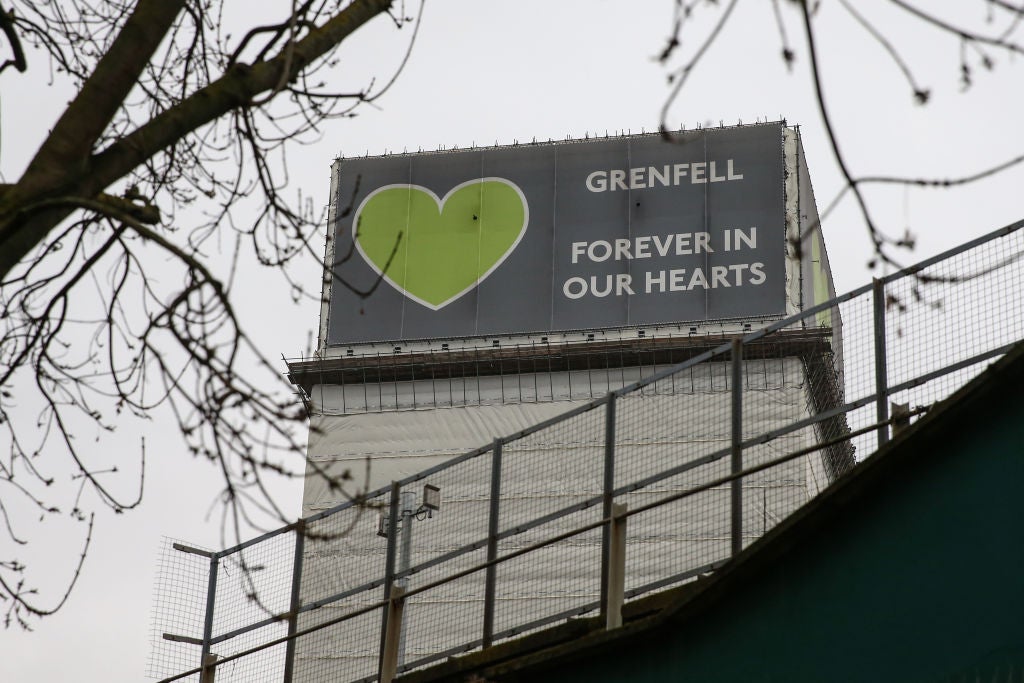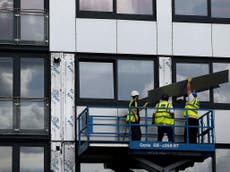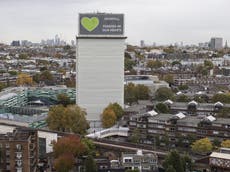Millions of people are living in flats built with dangerous cladding – they should not be expected to foot the bill
Editorial: The Conservative Party will deserve to pay a heavy political price if it fails to rescue those for whom the dream of home ownership has turned into a nightmare

In addition to the terrible pain and suffering for those families affected directly, the 2017 Grenfell Tower fire has also left an awful legacy for millions of people living in flats built with dangerous cladding and other materials that must now be removed to meet fire safety standards.
Leaseholders face bills of tens of thousands of pounds for remedial work, which many will be unable to afford, higher building insurance premiums and the huge cost of “waking watch” fire safety patrols. The anxiety of lockdown has been compounded by the knowledge that their homes are dangerous, and have become a worthless asset they cannot sell because they are unmortgageable.
Some estimates suggest 4.6 million properties are affected. The scandal is causing real problems in the housing market, with sales of flats running at half the 2019 level.
Boris Johnson told MPs last week that the government would bring forward a plan to help those affected “very shortly”. Yet ministers have been slow to address this crisis. They have set aside £1.6bn to address a problem that will cost an estimated £15bn to put right, with grants wrongly allocated on a first-come-first-served basis rather than for the most dangerous blocks. The government’s long-awaited response has been held up by a predictable wrangle between the Treasury and the Ministry of Housing, Communities and Local Government over who should foot the bill.
Michael Wade, a government adviser, proposed long-term loans to the companies owning the buildings, which would then be repaid by leaseholders over up to 30 years. This has been rightly criticised by campaigners as a second mortgage that would leave some people in negative equity.
Ministers are believed to be considering a levy on developers to fund part of the cost, which would be fairer than punishing leaseholders for a problem not of their making. Five of the biggest house building firms, who have built now unsellable flats, have made pre-tax profits totalling almost £10bn since the Grenfell tragedy uncovered systemic safety problems in the industry. Ominously, ministers’ statements that flat dwellers should not have to meet any costs appear to have been diluted; they now say only that they should not face unreasonable costs.
The Commons will today debate a Labour motion proposing a national cladding taskforce, modelled on a successful one in Australia, to carry out an urgent audit to discover the extent of dangerous materials on buildings, prioritise work according to risk and take enforcement against companies which refuse to act. Labour says any shortfall in funding should be made up by a levy on developers, so leaseholders are protected. These are sensible ideas that should be taken seriously by the government, which should abandon its attempt to make leaseholders contribute towards the cost. Despite the huge hole the coronavirus pandemic has blown in the public finances, there is a strong case for taxpayers to meet part of the bill.
Although the Commons vote will not be binding, ministers should take note that 34 Tory backbenchers have signed an amendment to the Fire Safety Bill that would prevent developers from passing on the costs to flat-buyers – almost enough to defeat the government.
Ministers must not be deterred from doing the right thing by their knowledge that some of the developers involved have donated up to £1m to the Conservative Party. They must ensure that the buck stops with those responsible for this crisis, not its innocent victims.
Such an approach would be in the government’s own interests. Many of the flats are in the north and Midlands where the Tories, who trumpet their support for a “property-owning democracy”, made sweeping gains at the 2019 election. The party will deserve to pay a heavy political price if it fails to rescue millions for whom the dream of home ownership has turned into a nightmare.



Join our commenting forum
Join thought-provoking conversations, follow other Independent readers and see their replies
Comments